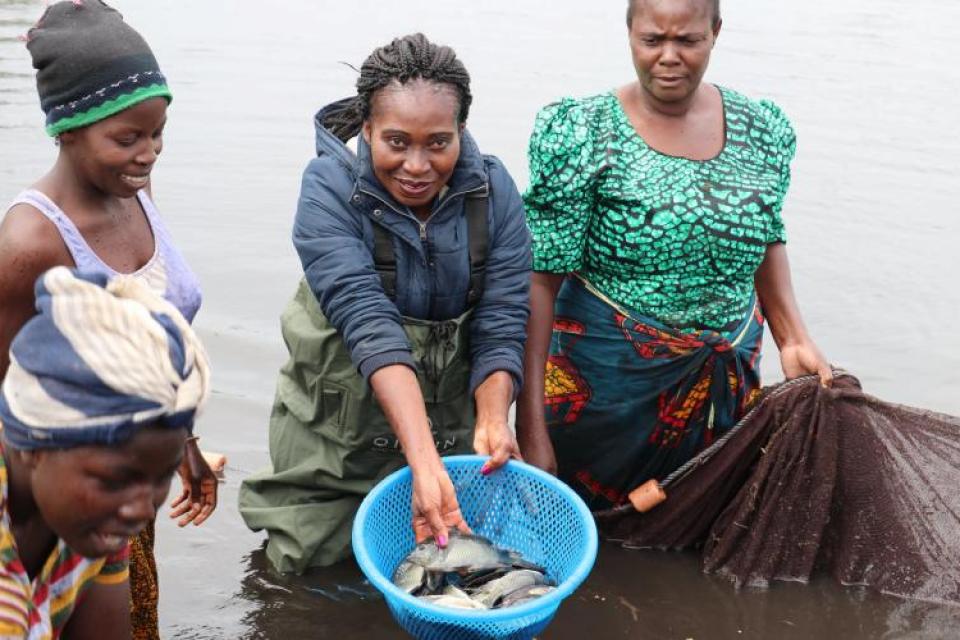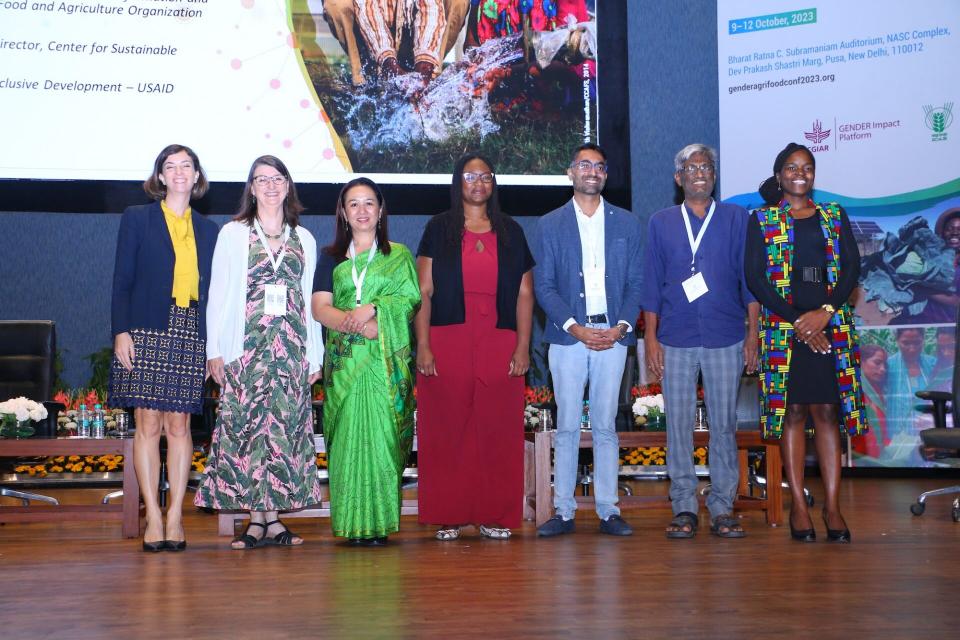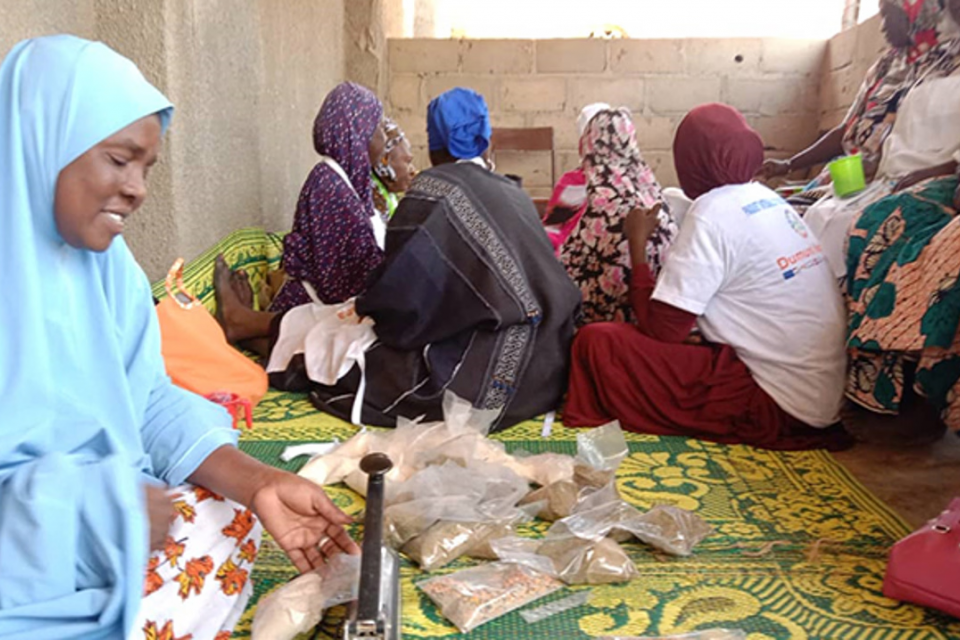SAPLING research seeks to empower women in central Uganda to fully benefit from the pig industry
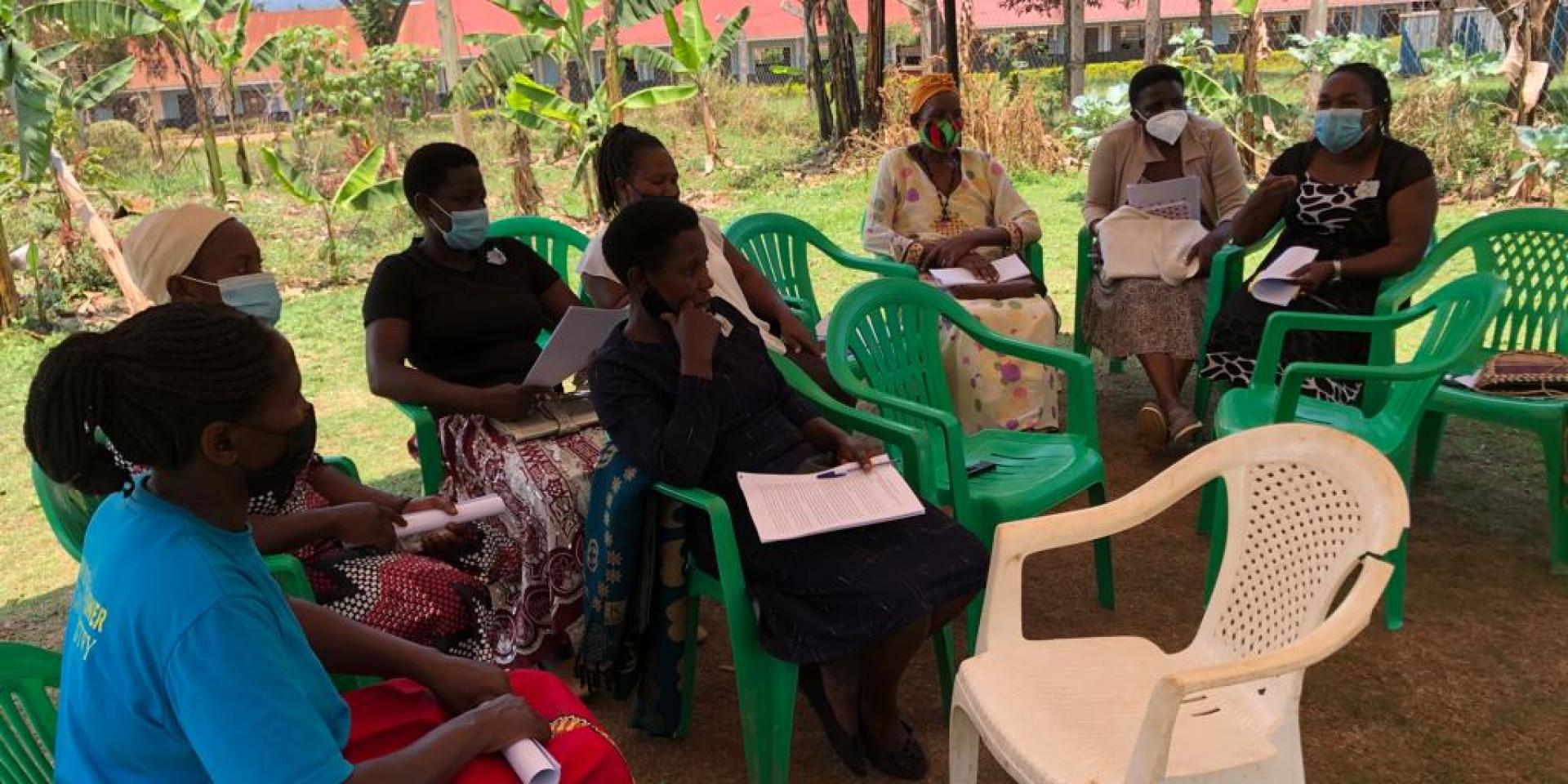 Photo via CGIAR.org.
Photo via CGIAR.org.
Women in central Uganda, particularly those from the Baganda community, play a significant role in pig production, which is a widespread backyard venture in the region. But despite livestock and domestic care work being traditionally assigned to women, their pig-related businesses are riddled with challenges, some of which are due to deeply ingrained gender norms.
This blog post was authored by Tsehay Gashaw and Esther Leah Achandi as part of the CGIAR GENDER Impact Platform training on telling stories about agricultural solutions that work for women. This training took place, in part, during the 2023 CGIAR GENDER conference on October 9-12, 2023, in New Delhi, India. The blog post was first published by the CGIAR SAPLING Initiative, but it is re-posted in full below.
To counter these restrictive gender norms, the CGIAR Initiative on Sustainable Animal Productivity for Livelihoods, Nutrition and Gender Inclusion (SAPLING) seeks to create a triple-win by improving livestock productivity to not only enhance livelihoods and nutrition but also empower women farmers. With these goals in mind, the initiative is researching the conditions that can optimize the pig value chain in Uganda.
Esther Achandi, a postdoctoral fellow at the International Livestock Research Institute (ILRI), shared some research findings on this topic at a conference themed From research to impact: Towards a just and resilient agri-food systems, held in New Delhi from 9–12 October 2023. Organized by the CGIAR Gender Impact Platform and the Indian Council of Agricultural Research (ICAR), the conference had six themes, one of them being exploring the transition from women’s empowerment to gender transformative change in agri-food systems, including dynamics around restrictive gender norms.
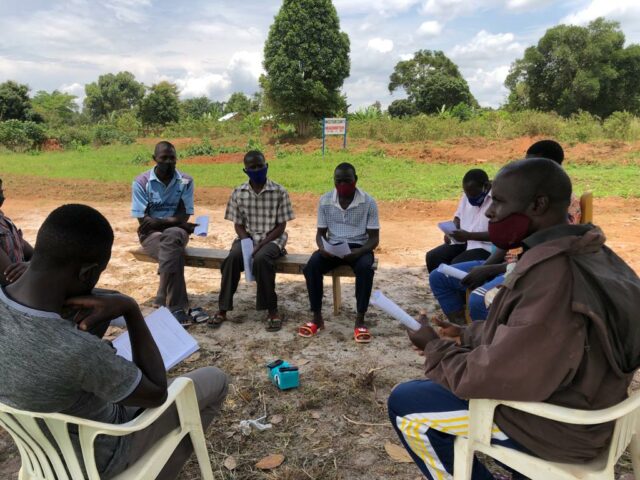
Photo credit: ILRI/Banalyaki Badru.
In rural central Uganda, perceptions that women should primarily work within the domestic sphere are still prevalent. Achandi says that in this region, women are discouraged from direct involvement in pig transportation, such as using bicycles and motorcycles, even though these are the primary modern means of transportation in remote areas. There is also resistance to women engaging in the sale of pork or meat cutting, with expectations that they remain impeccably clean, while men executing similar tasks face less stringent standards.
These gender norms actively dictate the activities women can engage in, how and where (in the domestic or public sphere) they can participate and can be restrictive, thereby constraining women from equitably accessing benefits of participation in pig-related businesses. Challenging the status quo often results in sanctions.
These sanctions might include gossip, aggression, marital distress and economic exploitation. For example, some women employees and service providers are treated as if they are operating in a parallel market outside of formal protections, often receiving lower wages or paying higher prices for services compared to their male counterparts in similar trades.
‘When internalized, these norms become mental barriers that limit women’s initiative in pursuing empowerment; both women and men unconsciously hold these mental barriers and become gatekeepers. As gatekeepers, both women and men also control the path to empowerment for women seeking to break free from these constraints,’ Achandi adds.
Despite continuous empowerment efforts, these deeply ingrained norms create significant hurdles for women on their journey towards empowerment. They form a web of challenges that women must navigate.
To create meaningful impact, both men and women must be involved as advocates for empowerment and agents of change. Confronting restrictive gender norms and similar restrictions rooted in religion, class and ethnicity through gender transformative approaches can build people’s awareness and provide opportunities to engage with and question restrictive practices, therefore kick-starting the process of gender transformative change. Only then will women in central Uganda be able to participate fully in the pig industry and enhance livelihoods and nutrition for their families.
Following from this and related work supported by SAPLING in Uganda, the team through a process of co-creation will engage with selected communities in implementation of gender transformative processes. These will involve working with communities and other development partners through activities, reflections and processes targeted towards changing restrictive gender norms for more equitable environment.
